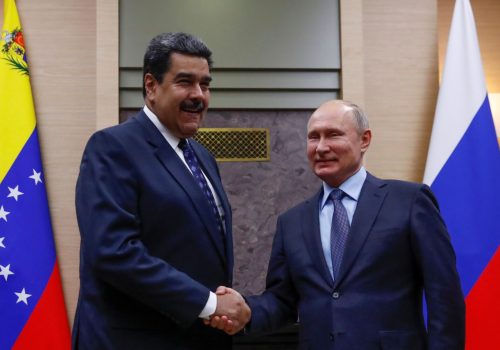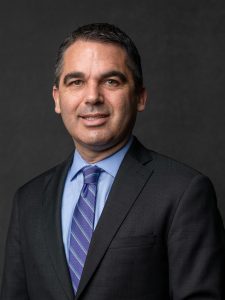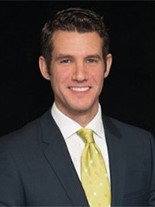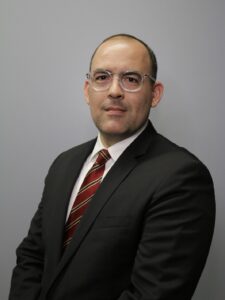As a wave of public support for democratic transition is sweeping Venezuela and the international community, Moscow continues to stand by Nicolás Maduro. Displays of military force, Rosneft’s ownership of 49.9 percent of CITGO shares, and billions in loans to Maduro, showcase Russia’s rooted geopolitical and economic interests in Venezuela and the hemisphere.
What drives Russian support for Maduro? What is its role in the unfolding humanitarian, economic, and political crisis? How can the United States counter Russian involvement in Venezuela?
The Eurasia Center and the Adrienne Arsht Latin America Center host a panel that discusses the extent of Russian involvement in Venezuela, Moscow’s motivations and possible next moves, and how the United States should react. The panel is introduced by the hon. Richard L. Scott, United States Senator (R-FL).
The discussion is joined by Ambassador Paula J. Dobriansky, senior fellow, Havard University Belfer Center; former under secretary of State for global affairs; Francisco Monaldi, fellow, Latin American Energy Policy, director Latin America Initiative, lecturer, Energy Economics, Baker Institute for Public Policy, Rice University; Evelyn N. Farkas, resident senior fellow, German Marshall Fund; former deputy assistant secretary for defense for Russia, Ukraine, Eurasia, US Department of Defense; Mark D. Simakovsky, senior fellow, Eurasia Center, Atlantic Council, former Europe/NATO chief of staff, Office of the Secretary of Defense for Policy, US Department of Defense; Konstantin Egger, columnist, Deutsche Welle; Ambassador John Herbst, director, Eurasia Center, Atlantic Council; and moderated by Jason Marczak, director, Adrienne Arsht Latin America Center, Atlantic Council.
RELATED experts

The Eurasia Center’s mission is to enhance transatlantic cooperation in promoting stability, democratic values and prosperity in Eurasia, from Eastern Europe and Turkey in the West to the Caucasus, Russia and Central Asia in the East.

El Centro para América Latina Adrienne Arsht amplía la comprensión de las transformaciones regionales y propone soluciones constructivas para informar como los sectores públicos y privados pueden promover la prosperidad en el hemisferio.




